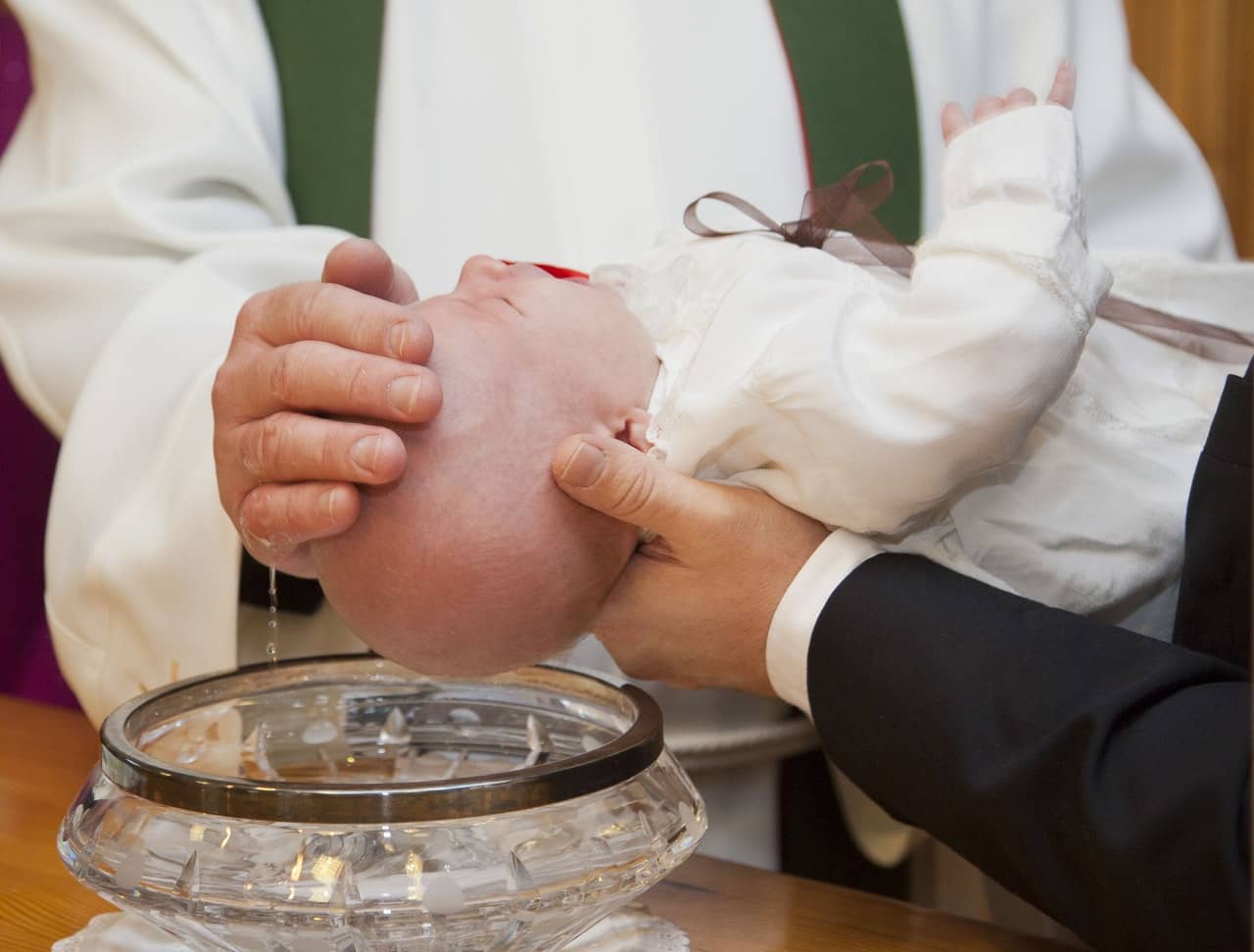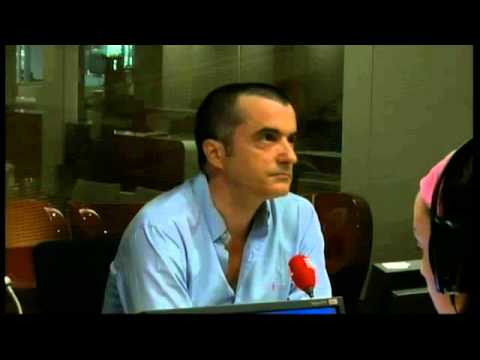From time to time, one hears of pastors who raise questions about baptizing the children of couples who are in same-sex relationships. This is an important issue and warrants serious thought about what baptism is, as well as what the church is. Here, I’ll lay out what the church teaches about children as candidates for baptism and then I will reflect on the pastoral issue involved.
From the start I should say that church teaching is clear but at the same time requires pastoral application. Both Canon Law and the Catechism of the Catholic Church favor those who request baptism for children. As a matter of fact, the law always gives the benefit of the doubt to those requesting any sacrament. That’s why, for example, the bar is set so low for couples seeking to marry. The relevant canon reads as follows:
Can. 868 §1. For an infant to be baptized licitly:
1/ the parents or at least one of them or the person who legitimately takes their place must consent;
2/ there must be a founded hope that the infant will be brought up in the Catholic religion; if such hope is altogether lacking, the baptism is to be delayed according to the prescripts of particular law after the parents have been advised about the reason.
§2. An infant of Catholic parents or even of non-Catholic parents is baptized licitly in danger of death even against the will of the parents.
Of course, the part of this canon most relevant to the present concern is found in 868 §2. What does it mean that “the infant will be brought up in the Catholic religion”?
Obviously, there are some who want to argue that it is not possible for a same-sex couple to authentically raise a Catholic child. Regardless of the fact that there is an unwarranted pre-judgment here about the actual sexual activity of the couple in question, there are, in fact, a good number of same-sex couples who do actively and positively participate in parish life.
Some help can be given on the topic by a significant instruction that was issued by the Vatican’s Congregation of the Doctrine of the Faith in 1980. Entitled Pastoralis Actio, the instruction was aimed at clarifying the necessity of infant baptism under almost any circumstance. This was a response to those who argued that since baptism is a sacrament of faith (a time-honored axiom of Catholic theology) it should be postponed until persons are old enough to own their faith. Here are the relevant paragraphs:
1) Baptism, which is necessary for salvation, is the sign and the means of God’s prevenient love, which frees us from original sin and communicates to us a share in divine life. Considered in itself, the gift of these blessings to infants must not be delayed.
2) Assurances must be given that the gift thus granted can grow by an authentic education in the faith and Christian life, in order to fulfill the true meaning of the sacrament.[37] As a rule, these assurances are to be given by the parents or close relatives, although various substitutions are possible within the Christian community. But if these assurances are not really serious there can be grounds for delaying the sacrament; and if they are certainly non-existent the sacrament should even be refused. §28
One can see here the Church’s clear conviction that, all things being equal, infants should be baptized as soon after birth as is reasonably possible.
This still leaves us with the question of what constitutes the assurance that a child will be raised in the Catholic faith. There are some who would deny that this is possible when the infant is the child of same-sex parents. One can find a good response to this challenge in the USCCB’s 2006 document Ministry to Persons with a Homosexual Inclination: Guidelines for Pastoral Care, which states:
Baptism of children in the care of same-sex couples presents a serious pastoral concern. Nevertheless, the Church does not refuse the sacrament of baptism to these children, but there must be a well-founded hope that the children will be brought up in the Catholic religion. In those cases where baptism is permitted, pastoral ministers should exercise prudential judgment when preparing baptismal ceremonies. Also, in preparing the baptismal record, a distinction should be made between natural parents and adoptive parents (p. 21).
The bishops seem confident that children of same-sex couples can and will be brought up in the Catholic faith. One can find the same affirmation in the Instrumentum Laboris (or preparatory document) for the 2014 Vatican Extraordinary Synod on the Family.
“One can see here the Church’s clear conviction that, all things being equal, infants should be baptized as soon after birth as is reasonably possible.”
John F. Baldovin
Admittedly there has been some resistance to baptizing these children. Cardinal Marc Ouellett, then the archbishop of Quebec, caused a stir in 2005 when he told the Senate of the Canadian parliament that the church would not baptize the children of same-sex parents who insisted on signing the baptismal certificate. That of course is different from outright refusal. The Diocese of Madison, Wisconsin, was in the news in 2014, when its vicar general required that pastors consult the diocese before baptizing these children. On the other hand, in 2017, Pope Francis publicly congratulated a Brazilian same-sex couple who had their three adopted children baptized.
In addition, we should not forget that the Church does not expect couples to raise their children as Catholics in isolation. The formation of children is a responsibility of the entire community, including especially godparents who are chosen with that duty in mind.
At issue is whether those who are in a situation which the Church officially does not condone (same-sex marriage) are capable of raising children as good Catholics. The answer, it seems to me, is in line with Galileo’s response to the Church officials who wanted to condemn his position on the earth circling the sun: E pur si muove (“But it does move”).
There are numerous examples of couples who do in fact raise their children as Catholics, arranging for their religious education, taking them to Church, having them prepared for first holy communion and confirmation and so forth. These are people who honestly and profoundly profess the Creed that is an integral part of the baptismal liturgy. With regard to situations which the Church does not condone, we should ask whether the same pastors would deny baptism to children of single parents whose children were born out of wedlock or to children whose parents have been divorced and remarried. The answer, I suspect, is “no.” I have myself, in fact, baptized children at a Sunday Eucharist born to a mother who was not married. More on this below.
“The formation of children is a responsibility of the entire community, including especially godparents who are chosen with that duty in mind.”
John F. Baldovin
To get a better picture of the situation, I decided to do a very informal and anecdotal survey of same-sex parents and of pastors. (Unfortunately, I could not find any scientific surveys or data on the issue.) I interviewed one couple who had their adopted son baptized about ten years ago. The pastor was very accommodating and helpful, but did suggest, despite the desire of the parents, that the baptism not take place at a Sunday Mass. The couple told me that there were more people at the baptism than had been at the Sunday Mass! The pastor even waited for the adoption to be finalized so that both parents’ names could be registered on the baptismal certificate.
I also spoke with several pastors who regularly baptize the children of same-sex parents. They had no difficulty in having the parents sign the baptismal certificates. Before the pandemic, at least one of the parishes did baptize these children at Sunday Masses without any fear of scandal. Admittedly, these parishes would be known as LGBTQ+ friendly. No doubt the question of baptizing at a Sunday Mass is a sensitive one. As with so many other matters, pastors would need to exercise discernment.
On this issue, the bottom line it seems to me is very clear. Children have the right to be baptized except when it is against the will of their parents or there is scant possibility that they will be raised as Catholics. Pastors should baptize the children of same-sex couples in an affirming and pastorally sensitive way.



